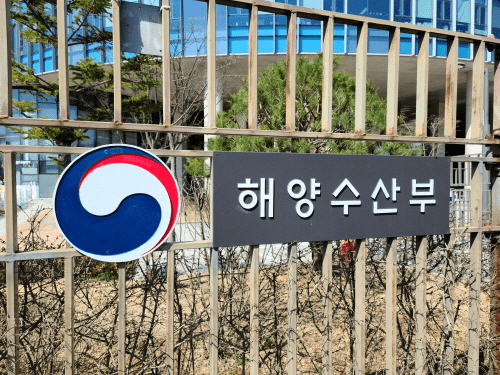
The Ministry of Oceans and Fisheries, in collaboration with the National Institute of Science and Technology Human Resources Development and the Korea Research Institute of Ships & Ocean Engineering, is set to actively pursue joint research and establish global networks with leading European maritime mobility research institutions. This international cooperation program is designed to secure super-gap technologies in the shipping and shipbuilding industries and to preemptively acquire eco-friendly and digital maritime mobility technologies. It particularly focuses on elevating Korea's technological capabilities and talent to a global standard through cooperation with leading research institutions in Europe, including Norway and Germany.
Future Maritime Mobility: The Convergence of Decarbonization and Digitalization
Maritime mobility refers to next-generation marine transportation methods and service technologies that integrate decarbonization and digitalization. This is a broad concept encompassing not only vessels but also various marine transportation methods, related infrastructure, and operating systems. With climate change response and the advancement of 4th Industrial Revolution technologies, maritime mobility is emerging as a core paradigm in the global shipping and shipbuilding industries. The strengthening of carbon emission regulations by the International Maritime Organization (IMO) and the development of autonomous navigation technologies are further accelerating these changes.
In line with these global trends, the Ministry of Oceans and Fisheries is strategically promoting this cooperation program to ensure Korea can secure a leading position in the future maritime mobility market. Europe, in particular, possesses a long history and accumulated technological expertise in the maritime sector, leading global research in various fields such as eco-friendly ship technology, autonomous navigation systems, and marine data analysis.
Practical Cooperation with Leading European Institutions: Visit to SINTEF Ocean and Joint Research
For the first year of this program, 35 maritime technology professionals, selected through open recruitment and expert evaluation, will participate. From May 29th, they will visit leading marine research institutions in Germany and Norway, including SINTEF Ocean, a world-renowned marine specialized research institute in Norway, to identify the latest technological trends and undertake joint projects.
SINTEF Ocean is an independent research institution with the highest level of technology in Europe in the field of marine environment and ship operation optimization. Headquartered in Trondheim, Norway, SINTEF is one of Europe's largest independent research organizations in applied research, conducting innovative research in various fields beyond marine technology, including energy, construction, and material technology. In particular, SINTEF Ocean possesses extensive expertise across the entire maritime industry, including ship design, propulsion systems, maritime safety, marine resource development, and marine environmental impact assessment. This exchange is expected to further strengthen the technological and human resource networks between Korea and Norway.
Joint research topics include: ▲ technologies for improving the operational efficiency of eco-friendly ships, ▲ fuel transition strategies for carbon neutrality, and ▲ the establishment of autonomous navigation-based maritime mobility systems. These are all major challenges currently facing the maritime industry and are considered future growth engines. For example, improving the operational efficiency of eco-friendly ships is essential for reducing fuel consumption, thereby lowering carbon emissions and operating costs. Strategies for transitioning to next-generation fuels like ammonia and hydrogen provide a long-term roadmap for decarbonization. Furthermore, autonomous navigation technology has the potential to 혁신적으로 improve the safety and efficiency of marine transportation.
Strategic Dispatch for Securing Future Growth and Enhancing International Competitiveness
An official from the Ministry of Oceans and Fisheries emphasized that this program is not merely a short-term training but a 'strategic dispatch project' focused on establishing joint research and practical cooperation. This is a foundational effort to enhance the international competitiveness of the Korean maritime industry and secure future growth, moving beyond one-time exchanges and focusing on a long-term perspective.
Based on the human networks and technological exchange achievements accumulated through this program, the Ministry of Oceans and Fisheries plans to continuously invest in technological innovation and talent development necessary for Korea to leap forward as a global maritime power. The shipbuilding and shipping industries have been important pillars of the Korean economy, and continuous technological development and international cooperation are essential for them to continue their role in the era of future maritime mobility.
The Future of Korea's Maritime Industry: The Importance of Technological Innovation and Global Cooperation
Korea, as a global shipbuilding powerhouse and a major shipping nation, possesses outstanding capabilities in the maritime industry. However, continuous growth in a changing maritime environment, such as strengthened IMO environmental regulations, advancements in digital technology, and intensified international competition, requires incessant technological innovation and international cooperation.
The Ministry of Oceans and Fisheries' joint research program with advanced European institutions is considered an active response to these challenges. If Europe's accumulated know-how and Korea's technological development capabilities are combined, synergies can be created in core technology areas of future maritime mobility, such as eco-friendly ships, autonomous navigation systems, and smart marine ports. Furthermore, the establishment of international human networks is expected to provide a foundation for Korean maritime experts to play an active role on the global stage and contribute to leading global research trends.
Moving forward, the Ministry of Oceans and Fisheries plans to continue supporting the Korean maritime industry through ongoing international cooperation and investment, ensuring it maintains a competitive edge and achieves sustainable growth in the future.
[Copyright (c) Global Economic Times. All Rights Reserved.]






























